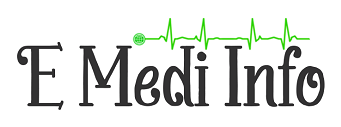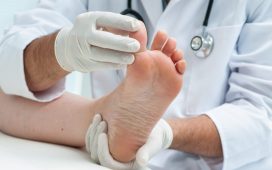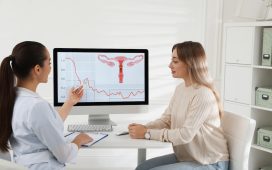According to research, a breast cancer diagnosis can be caused by a combination of factors. The primary unpreventable factors include being a woman and getting older. In most cases, breast cancer is detected in women over the age of 50years and above. But that is not to say that women below that age cannot be diagnosed with breast cancer.
Some women have been diagnosed with breast cancer even without risk factors they know of. A risk factor is anything that increases your chances of catching a disease such as breast cancer. However, having a certain risk factor is not to say that you will get the disease. In fact, most women with risk factors do not get breast cancer. It only means you should be more cautious and discuss with your doctor how to lower the risks and consider undergoing regular Hong Kong breast cancer screening.
Some breast cancer risk factors are associated with personal histories, such as genes, and cannot be changed, while others are lifestyle-related, and you can lower the risks.
Some of the preventable lifestyle risk factors for breast cancer include:
Being overweight
Being overweight or obese, especially after menopause, increases your risk of breast cancer. The science behind this notion is that before menopause, your ovaries make the most of your estrogen hormone, and the fat tissues only contribute to a small part of the total amount. When you enter menopause, your ovaries no longer make estrogen, so most of it comes from your fat tissues. Therefore having more fat tissues can raise estrogen levels and increase the risks of breast cancer.
Weight is also linked to specific types of breast cancer. Being overweight after menopause is linked to hormone receptor-positive breast cancer while being overweight before menopause is associated with triple-negative breast cancer, which is less common.
You should maintain a healthy weight throughout your life by balancing your diet intake with physical activity. It is also advisable to regularly attend Hong Kong breast cancer screening programs if you have an unhealthy weight.
Heavy alcohol use
Heavy alcohol use increases the risk of breast cancer. Typically, the risk is higher in women who take more alcohol daily. Also, women who have a slight alcohol intake of about 7-10% have an increased risk than women who do not drink. Women should avoid taking more than one alcoholic drink a day, and it is best not to take alcohol as it is associated with other types of cancers.
Breast implants
Although breast implants are not associated with breast cancer, they are linked with breast implant-associated anaplastic large cell lymphoma (BIA-ALCL), a rare form of non-Hodgkin lymphoma that occurs in the scar tissue around the breast implant. It occurs more in women with rough-textured implants rather than smooth textured implants. It could happen in the form of a lump, swelling, fluid accumulation, pain near the implant, or a change in the breast size or shape.
Reproductive history
Women who have not born children or have their first child after 30years are at a slightly raised risk of breast cancer. It is believed that having a child at a young age and having many pregnancies reduces breast cancer risks. Moreover, the risk of breast cancer is higher in the first decade after childbirth; then, it lowers over time. However, the effect of pregnancy on breast cancer is still complex.
Not breastfeeding and never carrying a full-term pregnancy can increase breast cancer risks. According to most studies, breastfeeding may lower the risks of breast cancer, especially if you do it for more than a year. This is because breastfeeding is believed to reduce the total number of menstruation cycles in a woman.
Some birth control hormones
Some birth control hormones may increase the risks of breast cancer.
- Birth control injections- according to some studies, getting long-acting progesterone injections such as depo-provera every three months may increase breast cancer risk.
- Oral birth control pills- women using oral contraceptives have a higher risk for breast cancer compared to women who have never used the pills. However, the risk goes back to normal within a period of 10years when you stop using the medications.
- Birth control implants, skin patches, vaginal rings, and intrauterine devices (IUD) also use hormones that can increase breast cancer risks. Some studies have suggested a connection between breast cancer and IUDs, but few studies have looked at the use of vaginal rings, skin patches, and birth control implants.
Menopausal hormone therapy
Menopausal hormone therapy with estrogen and progesterone alleviates menopausal symptoms and even prevents osteoporosis. It is also known as hormone replacement therapy or post-menopausal hormone therapy.
- Combined hormone therapy often prescribed for women who still have a uterus after menopause can increase the risks of breast cancer. The risk is believed to reduce five years after stopping the treatment, although not ultimately.
- Bioidentical hormone therapy is marketed as a safe way to alleviate menopausal symptoms, but there is no proof of its safety or effectiveness. Until there is proof, bioidentical hormone therapy has the same health risks as any other type of menopausal hormone therapy.
- The study of estrogen therapy has mixed results. Some studies have found a slightly high risk, while others have found no threat. But generally, estrogen therapy increases the risk of breast cancer slightly.
At the moment, there aren’t many strong reasons to use menopausal therapy other than relieving menopause symptoms in the short term. Other than an increased risk for breast cancer, combined hormone therapy also increases the chances of other conditions like heart disease, stroke, and blood clots.
Therefore, you and your doctor should weigh its benefits against the risks beforehand. Generally, it is best to do the slowest dose that works and at the shortest time possible.
In conclusion
Breast cancer screening is readily accessible and available these days, and more women are educated on conducting breast cancer self-checks. Cancer programs such as the Hong Kong cancer fund are also in place to help cancer patients deal with the financial burden of a cancer diagnosis. You can also prevent the lifestyle risk factors for breast cancer discussed above to lower your risk.







